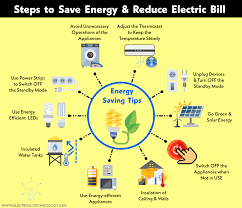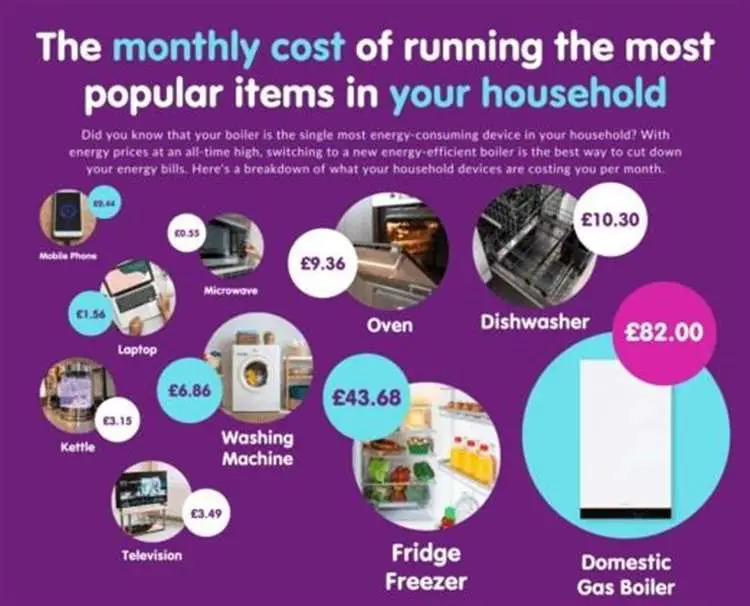Looking to save some money on your monthly utility bills? Look no further! In this article, you will find a handful of practical and easy-to-implement tips that will help you lower those pesky bills. From small adjustments to daily habits to smarter appliance usage, you’ll discover ways to reduce your energy consumption without sacrificing comfort. Get ready to say goodbye to those skyrocketing utility bills and hello to some extra cash in your pocket!
1. Heating and Cooling
1.1 Programmable Thermostat
One of the simplest and most effective ways to lower your monthly utility bills is by installing a programmable thermostat. With a programmable thermostat, you have the ability to set different temperature schedules throughout the day, allowing you to adjust the heating or cooling when you are not at home or when you are sleeping. By programming your thermostat to lower the temperature while you are away or asleep, you can significantly reduce your energy consumption and save money on your heating and cooling costs.
1.2 HVAC Maintenance
Regular HVAC maintenance is another essential aspect of lowering your utility bills. It is important to keep your heating and cooling systems in good working condition to ensure optimal energy efficiency. Schedule annual maintenance check-ups for your HVAC system to clean or replace filters, check for leaks, and ensure that everything is running smoothly. Regular maintenance will not only improve the energy efficiency of your system but also extend its lifespan, saving you money in the long run.
1.3 Insulation
Proper insulation is crucial for maintaining a comfortable temperature inside your home and reducing energy waste. Insulation acts as a barrier, preventing heat transfer in and out of your home. By insulating your walls, attic, and crawlspaces, you can minimize the amount of energy needed to heat or cool your living space. This, in turn, can lead to significant savings on your monthly utility bills. Consult with a professional to determine the best insulation options for your home and start reaping the benefits of improved energy efficiency.
1.4 Air Sealing
In addition to insulation, air sealing is another effective technique for reducing energy waste and lowering your utility bills. Air leaks can occur in various areas of your home, such as doors, windows, and electrical outlets. These leaks allow conditioned air to escape and outside air to enter, forcing your heating or cooling system to work harder to maintain the desired temperature. By properly sealing air leaks with weatherstripping, caulk, or insulation, you can create a more airtight and energy-efficient home, resulting in significant energy savings over time.
2. Electricity
2.1 Energy-Efficient Appliances
Investing in energy-efficient appliances is a wise long-term strategy for lowering your monthly electricity bills. Energy-efficient appliances are specifically designed to consume less energy while providing the same level of functionality. Look for appliances with the Energy Star label, as they meet rigorous energy efficiency standards set by the Environmental Protection Agency (EPA). By replacing outdated and energy-draining appliances with energy-efficient counterparts, you can significantly reduce your electricity consumption and enjoy considerable savings on your monthly utility bills.
2.2 LED Lighting
Switching to LED (light-emitting diode) lighting is a simple and effective way to save on electricity costs. LED bulbs use significantly less energy than traditional incandescent or fluorescent bulbs, while providing the same level of brightness. Although LED bulbs may have a slightly higher upfront cost, they have a much longer lifespan and consume up to 80% less energy. By replacing all the bulbs in your home with LED alternatives, you can enjoy immediate savings on your electricity bills while also reducing your environmental impact.
2.3 Unplug Unused Electronics
Many household electronics continue to draw small amounts of power even when they are turned off or in standby mode. This phenomenon is known as standby power or vampire power. By unplugging electronics when they are not in use, you can eliminate this unnecessary energy consumption and reduce your electricity bills. Consider using power strips that allow you to easily turn off multiple devices with a single switch, making it convenient to cut off power to all electronics at once when they are not in use.
2.4 Smart Power Strips
Smart power strips go one step further than traditional power strips by automatically cutting off power to devices that are not in use. These power strips use advanced technology to sense when a device is in standby mode or fully charged and subsequently shut off power to prevent energy waste. By using smart power strips, you can effectively reduce standby power and lower your electricity bills without the hassle of manually unplugging devices.
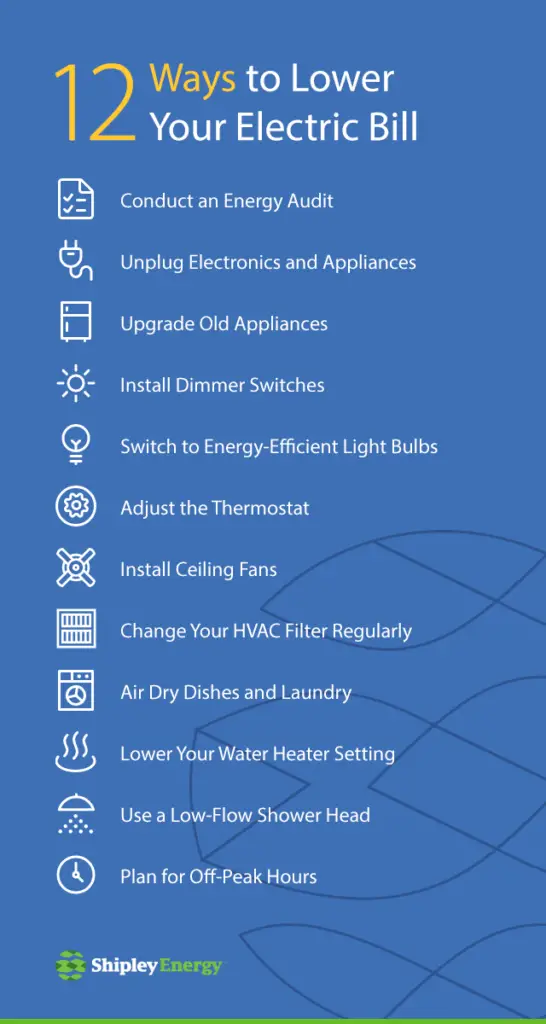
3. Water
3.1 Fix Leaks
Water leaks can contribute to high monthly water bills. Even small drips from faucets or toilets can add up over time, wasting water and money. It is important to regularly check for and fix any leaks in your plumbing system. Replace worn-out washers, faucet cartridges, or toilet flappers to prevent water from continuously leaking. By promptly addressing leaks, you can conserve water and see a noticeable decrease in your monthly water bills.
3.2 Water-Efficient Fixtures
Upgrading to water-efficient fixtures is an effective way to reduce water consumption and lower your utility bills. For example, installing low-flow showerheads and faucets can significantly decrease your water usage without sacrificing water pressure or the quality of your shower. Similarly, consider replacing old toilets with newer, water-saving models that use less water per flush. By implementing these water-saving fixtures, you can achieve substantial water savings and enjoy a reduced monthly water bill.
3.3 Reduce Water Heater Temperature
Lowering the temperature of your water heater can provide notable energy savings. Many water heaters are initially set to higher temperatures than necessary, resulting in excessive energy consumption. By adjusting the temperature to a comfortable yet reasonable level, such as 120 degrees Fahrenheit (48 degrees Celsius), you can reduce the amount of energy required to heat water. This simple adjustment can result in significant cost savings on your monthly utility bills without sacrificing your hot water needs.
4. Gas
4.1 Insulate Hot Water Pipes
Insulating hot water pipes is a cost-effective way to improve energy efficiency and save money on your gas bills. Uninsulated pipes can lose heat as the hot water travels through them, resulting in heat loss and wasted energy. By covering your hot water pipes with pipe insulation, you can minimize heat loss and ensure that more hot water reaches its destination. This can lead to decreased gas consumption and ultimately lower your monthly gas bills.
4.2 Install Energy-Efficient Gas Appliances
Similar to electricity, upgrading to energy-efficient appliances can also make a significant impact on your monthly gas bills. Look for gas appliances with high energy efficiency ratings, such as Energy Star-certified models. These appliances are designed to utilize gas more efficiently, resulting in lower energy consumption and cost savings. Consider upgrading your gas furnace, water heater, or stove to energy-efficient versions to enjoy both increased energy efficiency and reduced gas bills.
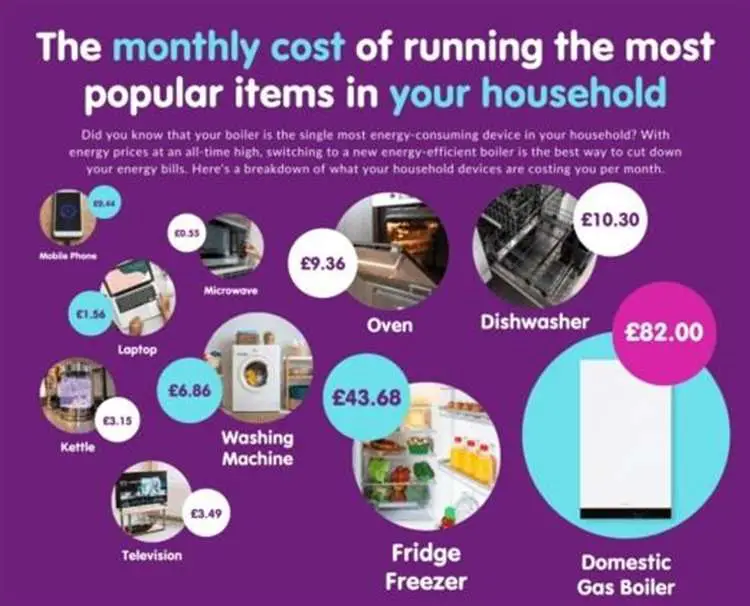
5. Internet and Cable
5.1 Bundle Services
One effective way to save on your monthly internet and cable bills is by bundling your services. Many providers offer bundled packages that include internet, cable, and sometimes even phone services at a discounted rate. By bundling, you can take advantage of cost savings while also simplifying your billing process. Compare different bundled packages from providers in your area to find the best deal that meets your needs and saves you money.
5.2 Negotiate Rates
Don’t be afraid to negotiate with your internet and cable provider for better rates. Providers often have promotional offers or special rates available that are not openly advertised. Call your provider and express your interest in lowering your monthly bill. Inquire about any available discounts, promotions, or loyalty rewards programs that you may qualify for. By negotiating with your provider, you may be able to secure a better rate and potentially save a significant amount of money over time.
5.3 Downgrade or Cut Unused Services
Take a close look at the services you are currently subscribed to and consider whether you are utilizing them fully or if there are any unnecessary add-ons. If you find that you are not using certain channels or features, consider downgrading your cable package to a more basic plan. Similarly, evaluate your internet usage and determine if you can switch to a lower-speed package without sacrificing your browsing needs. Cutting out unused or unnecessary services from your bundle can lead to noticeable reductions in your monthly internet and cable bills.
6. Phone
6.1 Review Your Plan
Reviewing your phone plan is a smart move to ensure that you are not overpaying for services you do not need. Take the time to analyze your phone usage and assess whether your plan aligns with your needs. Look for areas where you can make adjustments, such as reducing the number of minutes, texts, or data in your plan. By right-sizing your phone plan, you can avoid needless expenses and lower your monthly phone bill.
6.2 Switch to a Cheaper Provider
Consider switching to a cheaper phone service provider if you find that your current plan is not cost-effective. There are numerous providers in the market offering competitive rates and various plans to suit different needs. Take the time to research and compare providers in your area to find a plan that offers the services you require at a more affordable price. Switching providers can often lead to significant savings on your monthly phone bills without sacrificing call quality or network coverage.
6.3 Reduce Data Usage
Excessive data usage can drive up your phone bill, especially if you regularly exceed your plan’s data cap. To reduce data usage, connect to Wi-Fi whenever it is available to avoid using cellular data for internet browsing or media streaming. Additionally, consider limiting data-intensive activities such as video streaming and app downloads to when you are connected to Wi-Fi. Taking small steps to reduce your data usage can result in substantial savings on your phone bill.
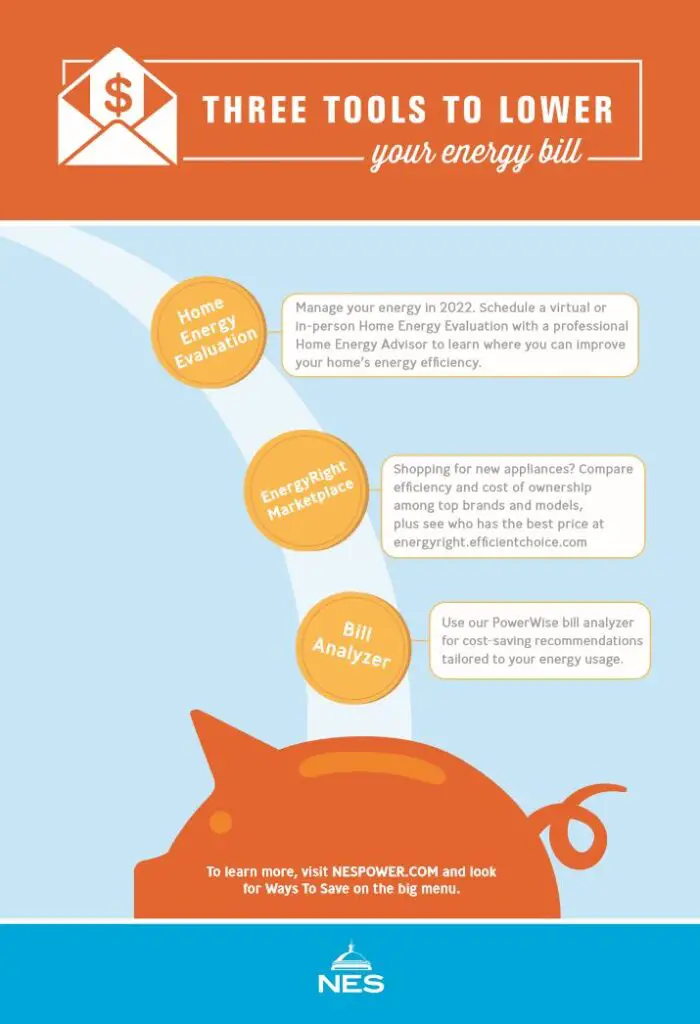
7. Waste Management
7.1 Recycle and Compost
Implementing recycling and composting practices in your household not only benefits the environment but can also contribute to lower waste management costs. Separate recyclable materials such as paper, plastic, glass, and metal from your regular trash and dispose of them in designated recycling bins or containers. Composting organic waste, such as food scraps and yard waste, can also divert a significant portion of waste from landfills. By reducing the amount of waste you send to traditional trash collection, you may be able to downsize your trash collection service and save money on waste management fees.
7.2 Reduce Waste Generation
Minimizing the amount of waste you generate is a proactive approach to reducing waste management costs. Consider adopting habits such as using reusable shopping bags, choosing products with minimal packaging, and avoiding single-use items whenever possible. By being mindful of your consumption habits and actively seeking ways to reduce waste, you can contribute to lower waste management fees and make a positive impact on the environment.
7.3 Opt for Paperless Billing
Opting for paperless billing is an easy way to save on waste management costs associated with paper statements. Many utility companies, banks, and service providers offer the option to receive bills and statements electronically via email or through online account portals. By selecting paperless billing, you can eliminate the need for physical statements and reduce the amount of waste generated from paper mail. This small change not only reduces waste but also makes bill payments more convenient and accessible.
8. Energy Assistance Programs
8.1 Research Utility Rebates
Many utility companies offer rebates or incentive programs to encourage customers to adopt energy-efficient practices and implement energy-saving measures. These programs can range from rebates for purchasing energy-efficient appliances to incentives for upgrading insulation or installing solar panels. Research the utility rebates and incentives available in your area and take advantage of the financial assistance provided. By participating in these programs, you can reduce your upfront costs for energy-saving upgrades and ultimately lower your monthly utility bills.
8.2 Government Aid Programs
In addition to utility rebates, there are various government aid programs available to assist individuals and families with their energy bills. These programs are designed to provide financial relief to those who may be struggling to pay their utility bills. Eligibility requirements and benefits vary depending on location and income level. Research the government aid programs available in your area and determine if you qualify for any assistance. Taking advantage of these programs can help alleviate the financial burden of high utility bills and ensure that you have access to essential energy services.
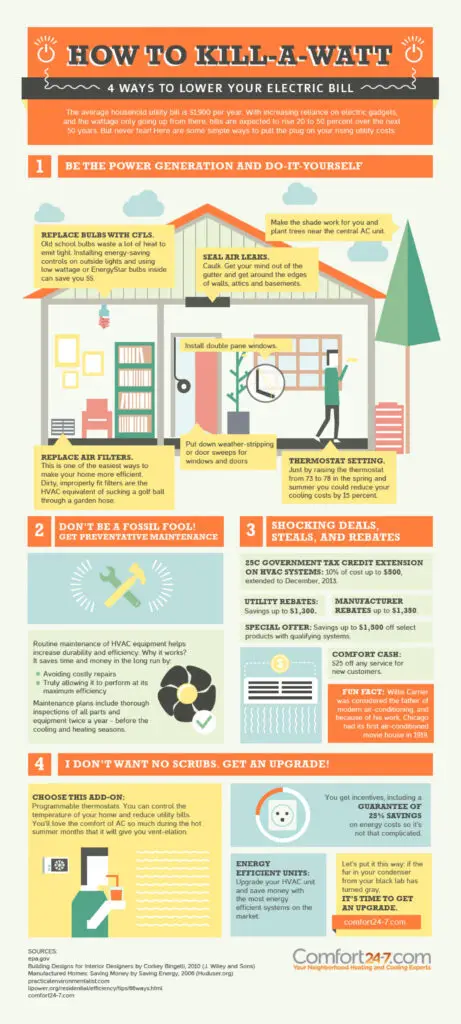
9. Energy Audits
9.1 Hire a Professional Auditor
If you want a comprehensive assessment of your home’s energy efficiency, consider hiring a professional auditor to conduct an energy audit. Energy auditors are trained to examine various aspects of your home, including insulation, air sealing, HVAC systems, and appliances. They use specialized tools and techniques to identify areas of energy waste and make recommendations for improving efficiency. By investing in a professional energy audit, you can gain valuable insights into your home’s energy performance and receive personalized recommendations to optimize energy efficiency and reduce your monthly utility bills.
9.2 DIY Energy Audit
If hiring a professional energy auditor is not feasible, there are several DIY methods you can use to conduct a basic energy audit in your home. Start by inspecting areas for air leaks, such as windows, doors, and electrical outlets. Seal any visible gaps or cracks with weatherstripping or caulking. Check insulation levels in your attic and walls, and add or replace insulation where needed. Assess the efficiency of your HVAC system by cleaning or replacing filters and ensuring that vents remain unobstructed. By taking these steps, you can identify and address energy waste in your home and make improvements to reduce your utility bills.
10. Behavior Changes
10.1 Be Mindful of Energy Use
Being conscious of your energy consumption is key to lowering your monthly utility bills. Small changes in behavior, such as turning off lights when not in use, unplugging electronics, and closing doors and windows to prevent temperature loss, can make a significant difference in energy savings. Encourage everyone in your household to be mindful of their energy use and make a conscious effort to conserve electricity, water, and gas whenever possible. By making energy-conscious decisions a habit, you can effectively reduce your utility bills and contribute to a more sustainable future.
10.2 Adjust Heating and Cooling Settings
Take the time to adjust your heating and cooling settings to optimize energy efficiency. During the winter, lower your thermostat a degree or two and wear additional layers of clothing to maintain comfort. In the summer, raise your thermostat slightly and use fans to circulate air and create a cooling effect. Simple adjustments like these can result in noticeable energy savings without sacrificing comfort. Experiment with different settings to find the right balance between comfort and energy efficiency for your household.
10.3 Limit Water Consumption
Conserving water is not only beneficial for the environment but can also lead to significant savings on your monthly water bills. Encourage water-saving habits such as taking shorter showers, turning off the faucet while brushing your teeth or washing dishes, and only running full loads in the dishwasher or washing machine. Additionally, consider using water-saving features on appliances, such as eco-friendly dishwasher cycles or low-flow showerheads. By making a conscious effort to limit water consumption, you can enjoy reduced water bills and contribute to the conservation of this precious resource.
By implementing these tips and strategies for lowering your monthly utility bills, you can effectively reduce your energy and water consumption, minimize waste, and save money. Remember that every small change adds up to make a significant impact over time. Start incorporating these practices into your daily routine and make a positive contribution to both your finances and the environment.
